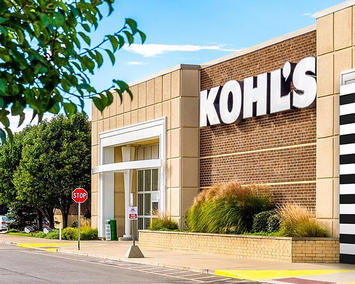
No, I’m not very happy that Kohl’s CEO Michelle Gass ended up taking more home in total compensation for 2020 than she did for 2019, for a year in which the company furloughed about 85,000 employees and closed its more than 1,100 stores nationwide for several weeks.
And neither do I like the fact that leaders of this retail chain – which has been the face of mid-American retailing for decades – canceled the Pillow Guy’s products after the Minnesota-based manufacturer became a political lightning rod.
But I’m still very glad that Kohl's seems to have beaten back the forces of coast-based activist investors who tried to overturn the board of the retailer based in Menomonee Falls, Wisconsin. Just on Wednesday, the company announced that it agreed with the investor group to place two directors nominated by the owners of 9.5 percent of Kohl's stock, and to settle their dispute.
Kohl’s represents the best of corporate innovation in Flyover Country, including great employment and advancement opportunities for our people, and qualifies as one of the truly phenomenal business success stories of the region during the last quarter century.
This assertion is absolutely true to me because I’ve experienced it on two significant levels. First, as a journalist based in Wisconsin for a while -- and for all of my career in the heartland -- I helped chronicle Kohl’s rise from a handful of stores in the Milwaukee area, after the chain’s founding by the same family that established Kohl’s supermarkets and that yielded Herbert Kohl, a former U.S. senator from Wisconsin and former owner of the Milwaukee Bucks.
The company started out with its headquarters in the back of a Kohl’s store in suburban Milwaukee, where then-CEO Bill Kellogg plotted the steady expansion of the chain based on a unique and clever approach to Kohl’s target customer: the middle-class mother.
At the very same time Walmart was building its impressive coast-to-coast empire that revolutionized mass-market retailing, Kohl’s was accomplishing something nearly as impressive in spreading and establishing its own retailing philosophy in new big-box stores nationwide.
The genius of Kellogg and of Kohl’s other leaders was to recognize that the chain’s formula wasn’t just popular with Wisconsin shoppers but also could transfer easily to value-oriented consumers across the country.
It featured a “racetrack” design in Kohl’s stores that gave shoppers an understandable merchandise map and quick and easy access to every part of the store; the use of shopping carts, initially, as a convenience that a traditional department store would never adopt; appealing relationships with mainstream apparel and soft-goods brands; strong private-label apparel lines; and not just value for the money but also a highly promotional pricing strategy that relied on a fast-changing mélange of weekly sales and kept store traffic hopping all the time.
Other innovations came along in spades, including a company-brand credit card that was early for the industry. Also, Kohl’s developed a loyalty program called Kohl’s Cash that – while confusing to non-committed shoppers like me – serves as cat nip to the chain’s typical customers and enables them, with some mental alacrity and organizational ability, to get even more bang for their bucks.
Kohl’s approach worked in spades. It had opened about 100 stores by the early 1990s around the Great Lakes, then went public in 1992. Building from there, Kohl’s steadily expanded across the entire country, eventually opening stores in 49 states.
Read the rest of this piece at Flyover Coalition
Dale Buss is founder and executive director of The Flyover Coalition, a not-for-profit organization aimed at helping revitalize and promote the economy, companies and people of the region between the Appalachians and Rockies, the Gulf Coast and the Great Lakes. He is a long-time author, journalist, and magazine and newspaper editor, and contributor to Chief Executive, Forbes, the Wall Street Journal, the New York Times and many other publications. Buss is a Wisconsin native who lives in Michigan and has also lived in Texas, Pennsylvania and Florida.













public stock
As with a lot of retail businesses, Kohl's might have been better off retained in family ownership rather than trying to feed Wall Street's growth model. But at least the stock, which is back near where it was 20 years ago, is paying a respectable dividend.